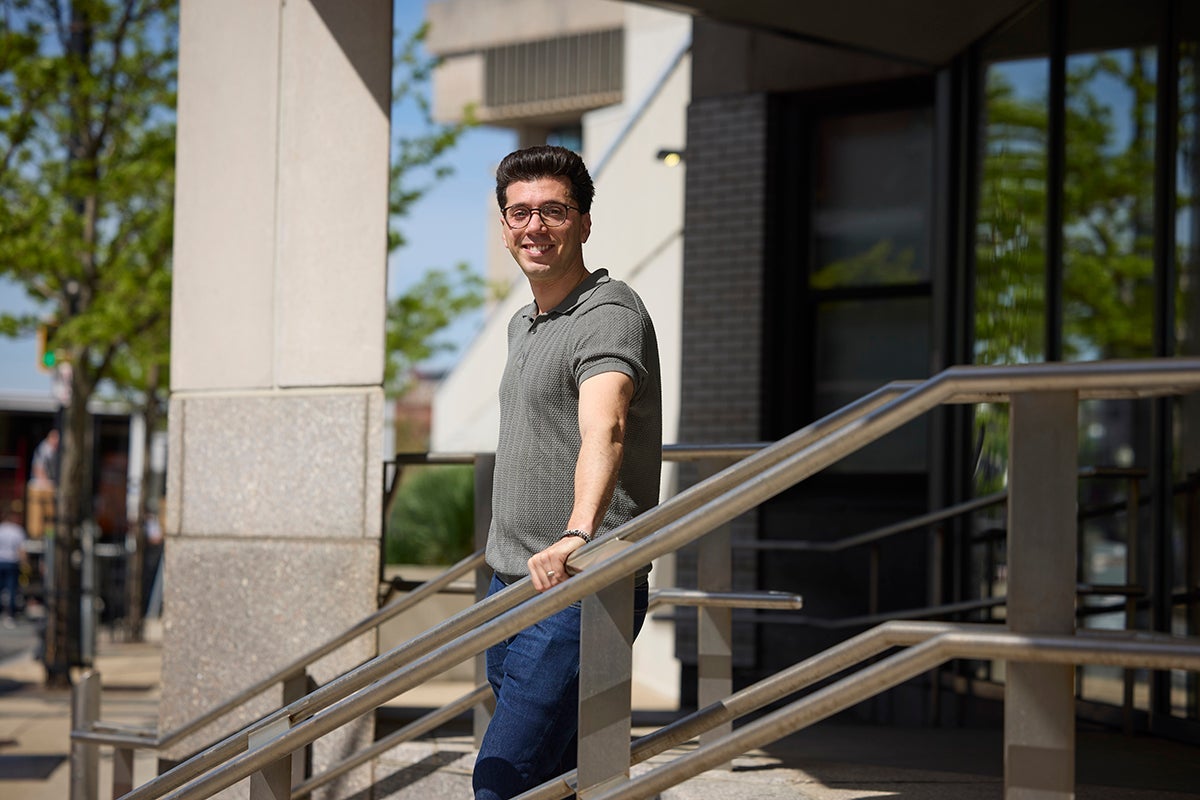Providing compassionate care to marginalized people

May 20, 2024 — As a medical resident in Toronto, Jeremy Cygler, MPH ’24, saw firsthand how the health care system failed vulnerable patients. This month, he graduates from Harvard T.H. Chan School of Public Health with a degree from the Department of Social and Behavioral Sciences. In a recent interview, he discussed how what he learned at the School will help him better meet the needs of his patients, and the importance of celebrating public health successes, no matter how small.
My number one mentor in science was my dad. He’s a physicist by training, but now does biochemistry research. He encouraged me to explore science as I was going through school and helped me with homework.
I practice in internal medicine and addiction medicine. I’ve always had an interest in working with marginalized groups. During my residency, I spent a big chunk of my time at a hospital in Toronto that caters to a high proportion of patients who are experiencing homelessness and who have unmet mental health and substance use needs. I wanted to develop the expertise to be able to provide them with the care that everyone deserves.
One thing I’ve learned through my work is an appreciation for the complexity that all of us have. People struggling with homelessness and substance abuse are people, too, with dreams and aspirations. Working with them and hearing about not just the really difficult times they’ve been through, but also about successes that they’ve had and the things that they aspire to has been something that I’ve carried with me.
I started noticing similarities in the problems and circumstances that were bringing people to the hospital. It got me thinking about what can be done at a population level. By the time someone who has opioid use disorder, for example, is rolling through the door of the hospital, we’ve already missed the greatest window of opportunity to change the trajectory of their health. Where we can make the biggest impact is through preventative approaches.
One of the reasons I was drawn to Harvard Chan School was the opportunity to join an amazing network. I had the sense—and this has been confirmed—that for every field of public health you’re interested in, there’s either a world leader here or someone who knows a world leader.
At the School, I’ve had the space to explore different interests. For example, I took the course Writing Persuasively for Public Health taught by Greg Harris and learned how to write op-eds, advocacy letters, and essays.
People in the clinical care space are trained to think in similar ways. I’ve appreciated meeting people here who are coming from nonprofits, government, and business, who think and approach problems in very different ways. It’s been really interesting sharing things that I’ve been grappling with in the clinical space and getting suggestions that I never would have thought of.
My fieldwork was looking at buprenorphine initiation for people who present to the emergency department with an opioid-related issue, such as overdose or withdrawal. It was a research collaboration between the Dartmouth Institute for Health Policy and Clinical Practice and Harvard Chan School. We know that starting people on this medication in the emergency room is beneficial, but there’s a gap between clinical guidelines and what happens in the real world. We’re still in the data analysis phase, but the project is looking at individual, hospital, and system-level factors that may explain why ER initiation numbers for buprenorphine are so low, and how we can target solutions.
I would like to take a more active role in my community around both advocating for patients’ needs and providing policy guidance. Being at Harvard Chan School has given me tools and language to feel comfortable in policy spaces.
I derive a lot of meaning from the work that I do. I think it’s very easy to focus on all of the times when things are not working out, but you have to take the time to reframe around successes, however small or limited they may be.
I’ve learned to be intentional about making sure that I’m not pushing myself past my breaking point. Public health by its nature attracts people who are willing to put the needs of others ahead of their own needs. I think it behooves everyone in this space to make sure that they’re looking after themselves as much as they’re doing the work to look after others. During the pandemic, I started getting really into cycling. I’m also getting back to reading some of my favorite fantasy and science fiction classics and making time for friends and family.
My wife and I are expecting our first child in August, so that’s the biggest thing on the horizon for me. I’m planning on moving back to Toronto and jumping back into clinical work, but incorporating a public health lens as I work to meet the needs of my patients and advocate for them.
Photo: Kent Dayton